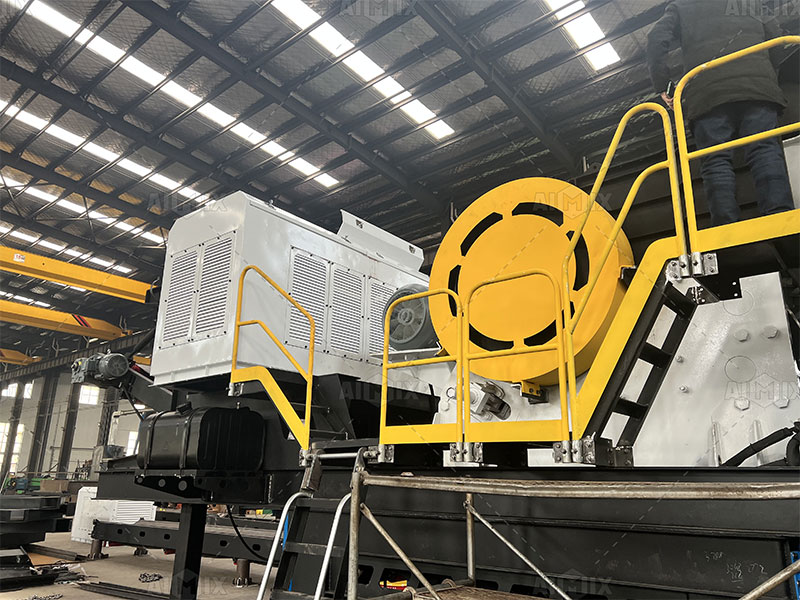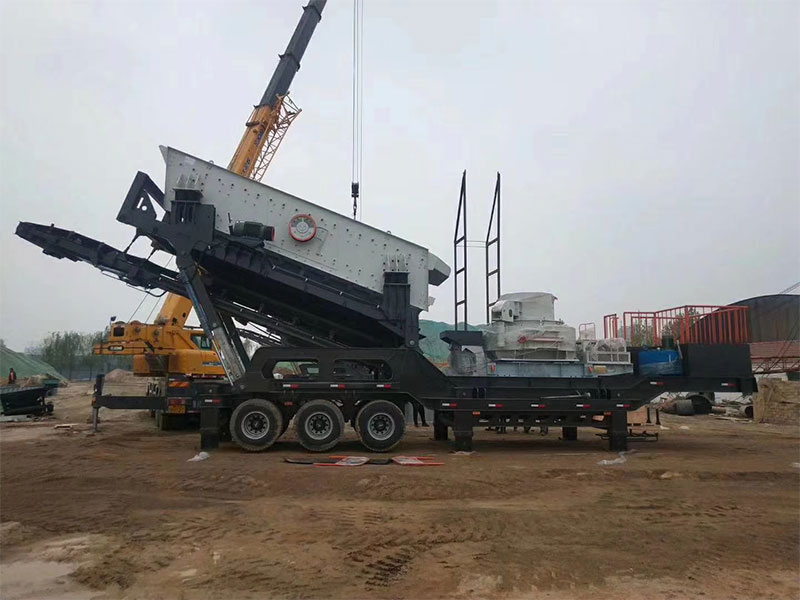Crushing plants play a pivotal role in various industries, from mining to construction, providing the necessary materials for infrastructure development. However, each type of crushing plant comes with its unique set of advantages and disadvantages.
Jaw Crusher Plants:
Advantages:
a. Highly Versatile: Jaw crushers are versatile machines capable of handling a wide range of materials, including hard rocks and ores.
b. Simple Design: The straightforward design of jaw crushers makes them easy to operate and maintain.
c. Primary Crushing: Ideal for primary crushing applications, especially when a large amount of material needs to be processed.

Disadvantages:
a. Limited Feed Size: Jaw crushers may have limitations on the maximum feed size they can handle.
b. High Wear and Tear: The moving parts of jaw crushers experience significant wear, requiring regular maintenance.
Cone Crusher Plants:
Advantages:
a. Highly Efficient: Cone crushers are known for their efficiency in producing well-shaped and finely graded materials.
b. Versatility: Suitable for various applications, including secondary and tertiary crushing.
c. Low Operational Costs: Cone crushers often have lower operating costs compared to other types of crushers.
Disadvantages:
a. Limited Feed Size: Similar to jaw crushers, cone crushers may have limitations on the size of the feed they can process.
b. Complex Maintenance: Some aspects of cone crusher maintenance can be intricate and require skilled personnel.

Impact Crusher Plants:
Advantages:
a. High Reduction Ratio: Impact crushers excel in achieving high reduction ratios, making them suitable for a variety of applications.
b. Cubical Shape: These crushers often produce cubical-shaped aggregates, which are desirable for certain construction uses.
c. Quick Installation: Impact crusher plants are known for their quick and straightforward installation process.
Disadvantages:
a. Abrasive Wear: Impact crushers may experience higher wear rates, particularly when processing abrasive materials.
b. Limited Feed Size: Like jaw and cone crushers, impact crushers may have restrictions on the size of the feed they can handle.
Gyratory Crusher Plants:
Advantages:
a. High Capacity: Gyratory crushers are capable of handling large capacities, making them suitable for high-demand applications.
b. Stable Operation: The design of gyratory crushers often results in stable and consistent performance.
c. Low Operational Costs: Gyratory crushers can be cost-effective in terms of operating expenses.
Disadvantages:
a. Complex Design: Gyratory crushers have a more complex structure, leading to higher installation and maintenance complexities.
b. Space Requirements: These crushers may require larger installation spaces compared to other types.
Mobile Crusher Plants:
Advantages:
a. Mobility: Mobile crushers offer unparalleled mobility, allowing them to be deployed at various locations within a site or moved between sites.
b. Reduced Transportation Costs: The ability to move crushers to the material source can significantly reduce transportation costs.
c. Environmentally Friendly: Mobile crushers often feature advanced technologies for reduced emissions, aligning with environmental sustainability.
Disadvantages:
a. Limited Production Capacity: Mobile crusher plants for sale may have lower production capacities compared to stationary plants.
b. Dependency on Infrastructure: Mobile crushers require infrastructure, such as fueling stations and maintenance facilities, which may limit their applicability in remote areas.
Conclusion:
The choice of a crushing plant depends on specific project requirements, material characteristics, and operational considerations. Each type of crushing plant has its advantages and disadvantages, and a careful analysis of these factors is essential to determine the most suitable option for a particular application. While jaw crushers and cone crushers excel in different aspects of crushing, impact crushers, and gyratory crushers offer unique features. Additionally, the mobility and environmental benefits of mobile crushers make them an attractive choice in certain scenarios. Overall, a well-informed decision considering the specific needs of a project will lead to the optimal selection of a crushing plant for efficient and cost-effective material processing.
